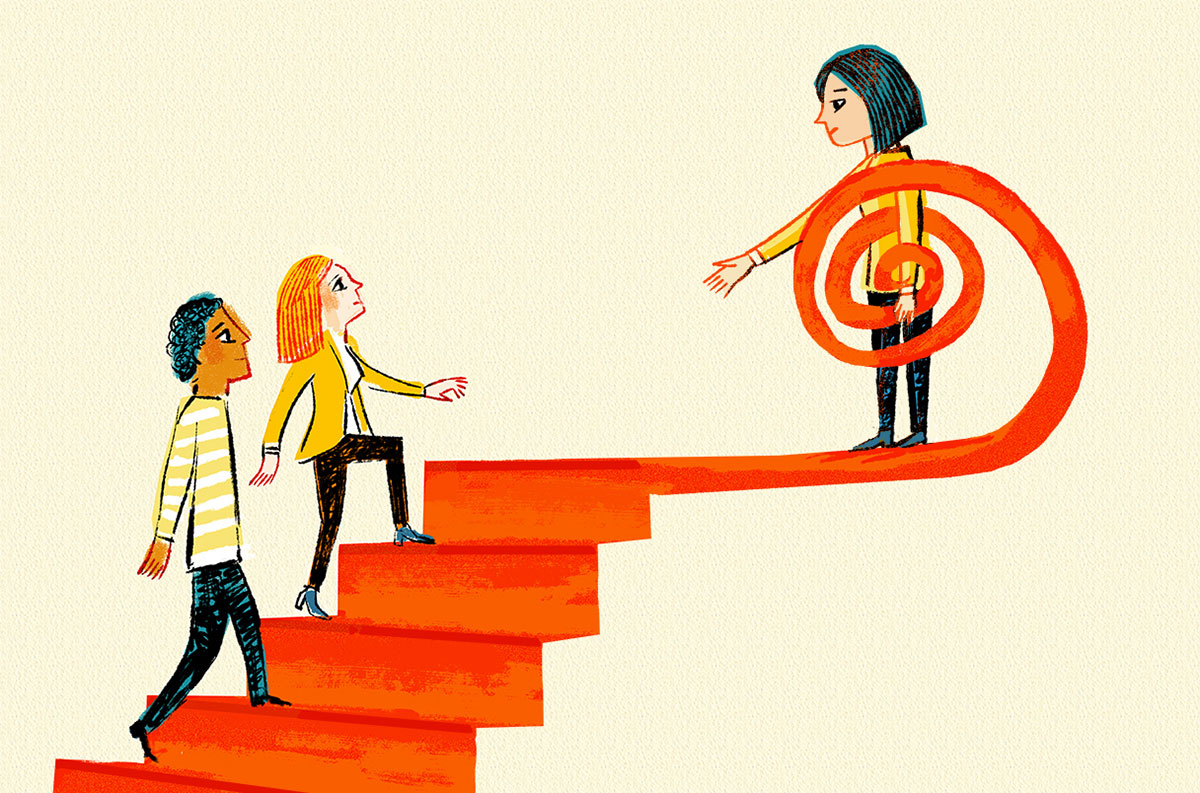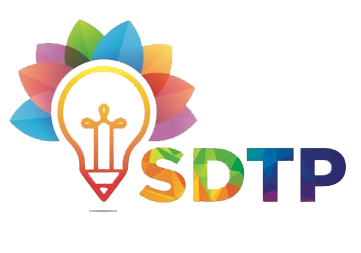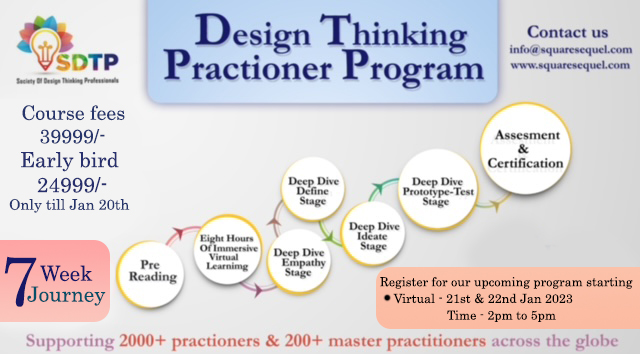“Tell me and I forget, teach me and I may remember, involve me and I learn.”
– Benjamin Franklin
The concept of mentoring, with its roots entrenched in ancient Greek mythology, has transcended time to become a fundamental pillar of personal and professional growth. One of the earliest depictions of mentoring can be found in Homer’s epic poem, The Odyssey, where Odysseus entrusts his son Telemachus to the care of his most trusted adviser, Mentor. As Telemachus embarks on a journey to learn the ways of being a king, Mentor assumes the role of a formal adviser, imparting wisdom and guidance.
Throughout history, this practice of mentoring has thrived in various forms across different societies. In ancient Greece, craftsmen took on young apprentices, offering them valuable mentorship to hone their skills and craft. As society progressed, the Middle Ages saw the emergence of structured apprenticeships within guilds, where journeymen learned their trades under the tutelage of experienced masters. The word “masterpiece” itself echoes the profound influence of mentorship, signifying a custom “piece” crafted by a skilled “master.”
In the modern era, the concept of informal mentoring has remained prevalent in various professions. Notably, since Sir Robert Peel’s establishment of the world’s first modern police force, older and experienced officers have taken on the role of mentors, guiding and supporting their younger counterparts in navigating the complexities of law enforcement. Such informal mentorship has proven invaluable to officers, offering them insights beyond initial training and shaping their careers.
Over centuries, the art of mentoring has evolved, transcending its mythological origins to become a cornerstone of personal and professional development. In today’s dynamic and competitive business landscape, mentorship has emerged as a powerful tool, with influential leaders and organizations recognizing its profound impact on nurturing talent and driving success.
Today, mentorship has developed into a strategic approach to fostering employee development. The essence of mentorship lies in pairing less experienced individuals with seasoned professionals who act as mentors, imparting knowledge, guidance, and encouragement. This directive process of teaching and sharing experiences paves the way for personal and professional growth, allowing novices to thrive in their chosen fields.
However, one critical issue that many modern organizations fail to grasp is the importance of preparing mentors adequately for their coaching and teaching roles. The classic tale of Mentor and Telemachus serves as a poignant reminder of this oversight. In Homer’s The Odyssey, Ulysses chooses Mentor as the trusted adviser for his son, not based on Mentor’s expertise or qualifications but merely because of his age and Greek heritage. As a result, Mentor fails to adequately prepare Telemachus for his future role as a king.
Similarly, in contemporary workplaces, organizations often appoint mentors without considering their readiness or competence in guiding and developing their mentees effectively. Simply relying on seniority or experience without proper mentor training can lead to missed opportunities for growth and development, both for the mentees and the mentors themselves.
To maximize the potential of mentorship, organizations must invest in mentor training and preparation. Mentorship goes beyond mere imparting of knowledge; it requires the mentors to possess effective coaching skills, empathetic listening, and the ability to tailor their guidance to the unique needs and goals of their mentees. With the right preparation, mentors can create a supportive environment where mentees feel empowered to explore new perspectives, develop their strengths, and navigate challenges.
By addressing the issue of mentor preparation, organizations can unlock the true potential of mentorship, creating a positive impact on employee development, engagement, and retention. Just as the ancient art of mentorship has stood the test of time, its contemporary application can continue to be a driving force for success in the ever-evolving corporate world. By empowering mentors and providing them with the tools they need to excel in their roles, organizations can cultivate a culture of learning, growth, and professional excellence.
To unlock an individual’s full potential and drive organizational success, there is a need to understand the intricacies of the mentoring process. Numerous studies point toward positive outcomes after mentorship and 87 percent of mentors and mentees feel empowered by their mentoring relationships because they follow a proper mentoring process.
What Is A Mentoring Process?

A robust mentoring process is required for excellent mentoring, since it sets direction and tempo, and steers the mentoring program to success.
The mentoring process is a strategic and collaborative relationship between an experienced professional (mentor) and a less experienced individual (mentee). The primary goal of this relationship is to empower the mentee to develop their skills, knowledge, and confidence, thereby facilitating their personal and career growth. Mentorship fosters a positive environment for the exchange of ideas, experiences, and feedback, leading to mutual benefits for both parties involved.
As a global professional services firm, Deloitte recognizes the importance of mentorship in nurturing future leaders. Deloitte’s mentoring initiatives provide junior employees with opportunities to connect with senior leaders who offer insights into the industry, share experiences, and provide career guidance. This mentorship process helps Deloitte employees gain a broader perspective on their roles and responsibilities and aids in their professional growth.
Several great companies like Deloitte recognized the significance of a mentoring process in nurturing talent, fostering growth, and driving overall organizational success. Companies like Google, Microsoft, Procter & Gamble, and General Electric demonstrate a well-designed and executed mentoring process that has created a culture of growth and innovation, making them industry leaders in their respective domains.
Stages Of Mentor-Mentee Relationship

“If you don’t believe in the messenger, you won’t believe in the message.”
The trust and rapport between the mentor and mentee lay the foundation for a successful mentoring journey. No matter the length of the mentoring relationship, it is critical to remember that it passes through stages. Each stage is crucial to the overall success of the relationship and should be addressed equally. The amount of time spent on each stage varies based on the mentor-mentee connection, however, they all advance in the same way.
Initiation
The initiation stage marks the beginning of the mentor-mentee relationship, where the foundation of trust and rapport is established. During this phase, the mentor and mentee connect and determine their compatibility for the mentoring journey. This stage involves the mentee expressing their goals and expectations, while the mentor shares their willingness to offer guidance and support.
Oprah, a media mogul and talk show host, recognized the potential in Dr. Phil McGraw’s unique approach to psychology and counseling during a guest appearance on her show. Impressed by his expertise, Oprah invited him to join her as a regular guest. This initial connection eventually led to Dr. Phil becoming a prominent figure on television with his own show. Their mutual respect and compatibility during the initiation stage laid the groundwork for a successful and enduring mentoring relationship.
Dr. Phil McGraw is grateful for his friendship with Oprah Winfrey. McGraw is known for his arrogance, however, when it comes to his mentor, he is all about respect. Dr. Phil admits that he would not be where he is now without Oprah Winfrey’s help. “I had a great life when I met her, and I’ve got a great life now, but she changed a lot of things,” Dr. Phil admitted on “The Kelly Clarkson Show.”
Mentoring Contract
Once the mentor and mentee decide to proceed with the relationship, the mentoring contract is established. This contract serves as a roadmap for the mentoring journey, outlining the specific goals, expectations, and commitments of both parties. It helps set clear boundaries and ensures that both mentor and mentee are aligned in their objectives.
The mentoring relationship between Warren Buffett, the renowned investor, and Bill Gates, the co-founder of Microsoft, serves as an excellent example of a well-defined mentoring contract. When they first met, Gates sought Buffett’s guidance on how to manage his wealth and make philanthropic decisions effectively.
Their mentoring contract included specific goals related to strategic giving and impact, and together they launched the “Giving Pledge” initiative, encouraging billionaires to pledge a significant portion of their wealth to charity. The clarity in their mentoring contract led to a profound and enduring partnership in philanthropy.
Gates once said, “Warren has guided me in shaping my long-term vision for Microsoft. His mentorship has helped me identify blind spots and focus on long-term success.”
Growth
The growth stage is the heart of the mentor-mentee relationship, where active engagement and learning take place. During this phase, the mentor imparts valuable insights, experiences, and knowledge, while the mentee explores new perspectives and develops their skills and abilities.
The mentorship between Steve Jobs, co-founder of Apple Inc., and Tim Cook, his eventual successor as CEO, exemplifies the growth stage. Jobs recognized Cook’s operational excellence and leadership abilities during their collaboration at Apple. As Jobs faced health challenges, he gradually delegated more responsibilities to Cook, preparing him to take on the role of CEO.
Jobs mentored Cook on Apple’s culture, design philosophy, and long-term vision, fostering Cook’s growth as a leader. The growth stage in their mentorship ensured a seamless transition of leadership and continuity of Apple’s success.
Closure
The closure stage marks the end of the formal mentor-mentee relationship. This phase involves reflecting on the progress made, celebrating achievements, and acknowledging the valuable contributions of both mentor and mentee. Although formal mentorship may come to a close, the impact and lessons learned often endure.
A heartwarming example of closure is that of Maya Angelou, the acclaimed author and poet, and Oprah Winfrey. Angelou served as a mentor and friend to Winfrey for many years, providing guidance and support in both personal and professional aspects of life. When Angelou passed away, Oprah expressed her gratitude and deep affection for her mentor, stating that Angelou’s teachings would continue to inspire and influence her for a lifetime.
“She was there for me always, guiding me through some of the most important years of my life,” Winfrey wrote. “The world knows her as a poet but at the heart of her, she was a teacher. ‘When you learn, teach. When you get, give’ is one of my best lessons from her.” The closure of their formal mentorship relationship marked the beginning of a lasting legacy of wisdom and love.
It is important to note that relationships progress at various paces based on the particular parties. The connection develops at its own rate as the mentor and mentee progress through each phase.
To make the connection work and ensure a great end, both parties must put forth effort. Communication is essential at all stages, and a lack of communication can lead to the relationship’s full dissolution. Allowing the connection to progress through the stages will result in a sense of accomplishment, learning, incredible growth, fostered friendship, and closure.
Mentorship is not just a one-time interaction but an ongoing process of support, guidance, and inspiration. Embracing mentorship as a fundamental aspect of professional development can pave the way for a brighter and more prosperous future for both individuals and organizations alike. As leaders, let us cultivate a culture of mentorship and witness the transformational impact it can create on our business landscape.
https://www.betterup.com/blog/mentorship-programs
https://www.nickiswift.com/879713/the-truth-about-dr-phils-relationship-with-oprah/
https://trafft.com/wp-content/uploads/2022/11/38840807.png
https://www.science.org/do/10.1126/science.caredit.adf7358/abs/_20221111_wl.jpg
Written By: Jimmy Jain
Edited By: Afreen Fatima
Society of Design Thinking Professionals









